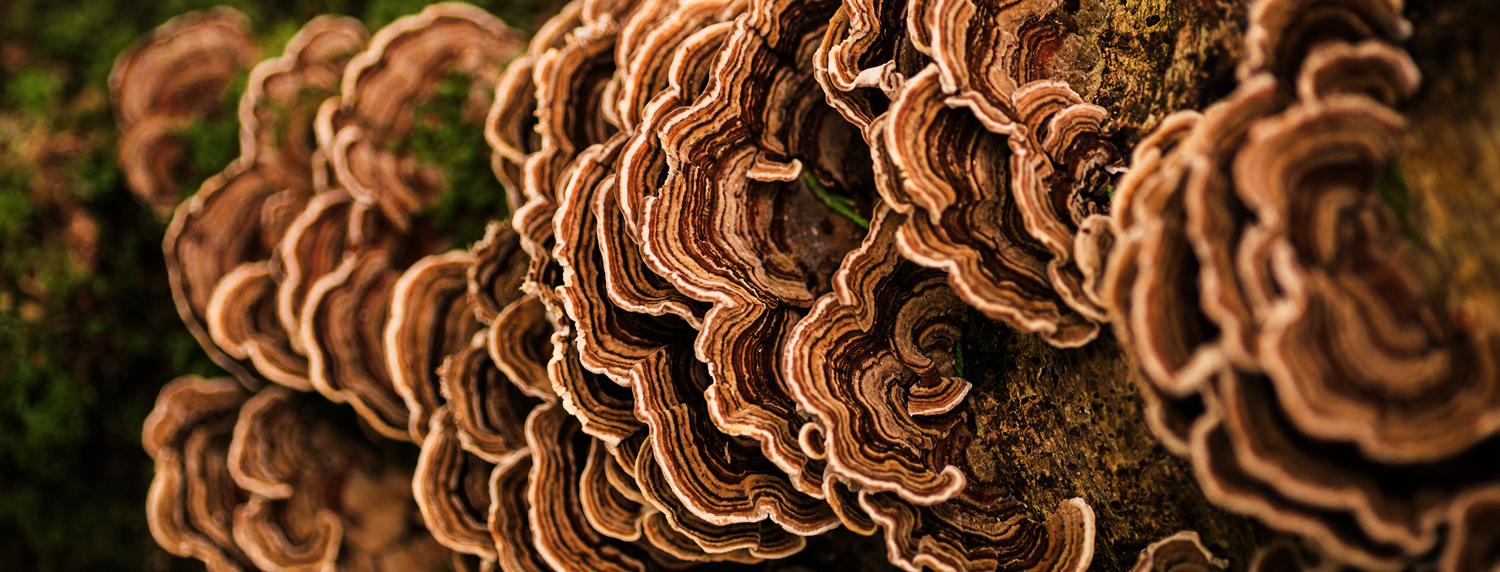Each type of medicinal mushroom has its own unique bioactive profile and capacity for supporting particular bodily systems. In the case of Turkey Tail mushrooms, it has a unique ability to strengthen the actions of the immune system*. One of the most researched of all medicinal mushrooms, Turkey Tail is in a class of its own. It is known in particular for its potent natural polysaccharides, including Polysaccharide K (PSK or Krestin) and Polysaccharide Peptide (PSP). These protein-bound polysaccharides help to support a healthy and robust immune response as well as manage the inflammatory response at the cellular level.*
Learn more about Turkey Tail Mushrooms

Frequently Asked Questions

Is turkey tail mushroom psychedelic?
No, Turkey Tail mushrooms are not psychedelics like psilocybin or muscinol mushrooms.

Do turkey tail mushrooms have side effects?
For most healthy adults, it is well-tolerated. Some people who are receiving chemotherapy and a substance extracted from turkey tail mushroom called polysaccharide krestin (PSK) have reported nausea, vomiting, low white blood cell counts, and liver problems. As with all dietary supplements that you might consider adding to your diet, talk to your doctor before use if you are pregnant, nursing, have a bleeding disorder or other condition for which you are taking any prescription medications.

Can turkey tail mushrooms harm your liver?
Moderation is best for all types of dietary supplements, but Turkey Tail mushrooms are believed to be beneficial to liver health. Studies show that the antioxidant and anti-inflammatory properties of turkey tail mushrooms can benefit health, and in some cases even help alleviate non-alcohol fatty liver disease.

How much turkey tail should I take?
To see real health benefits, the recommended turkey tail mushroom dosage of 2,000 mg should be consumed on a daily basis, unless directed otherwise by your healthcare provider.



